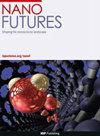利用具有增强抗菌活性的石榴皮提取物生物合成纳米硫促进伤口愈合
IF 2.5
4区 材料科学
Q3 MATERIALS SCIENCE, MULTIDISCIPLINARY
引用次数: 2
摘要
微生物伤口感染导致伤口愈合中的继发并发症,导致对疗效提高的治疗药物的高需求。尽管与本体形式相比,纳米硫具有更强的生物活性和更高的生物利用度,但其在伤口愈合应用中的探索程度非常有限。在这项工作中,我们使用石榴皮提取物通过简单的生物技术制备了生物SNP(SNP-B),并证明了其抗菌和伤口愈合活性。利用粉末x射线衍射仪、FESEM、透射电子显微镜和拉曼光谱对SNP-B进行了表征。使用不同的伤口模型(切除、切口、死区和烧伤)来评估SNP-B的伤口愈合潜力。2%(w/w)SNP-B治疗组的伤口收缩率(切除伤口,99.62±0.59%;烧伤伤口,99.46±0.59%)、断裂强度(393.2±10.87 g cm−2)、,肉芽组织重量(166.8±9.45 mg)与对照组相比(切除伤口84.24±2.78%;烧伤伤口90.58±3.2%;断裂强度241.3±16.11 g cm−2;肉芽组织质量91.17±7.28 mg)。在所有分析的伤口模型中,2%(w/w)SNP-B的疗效与标准(5%w/w聚维酮碘软膏)相当。SNP-B对铜绿假单胞菌、大肠杆菌、枯草芽孢杆菌和金黄色葡萄球菌的MIC值分别为90、80、80和60μg ml−1,显示出增强的抗菌活性。所获得的结果证明了SNP-B作为局部应用的多功能治疗剂的潜力。本文章由计算机程序翻译,如有差异,请以英文原文为准。
Biogenic synthesis of nano-sulfur using Punica granatum fruit peel extract with enhanced antimicrobial activities for accelerating wound healing
Microbial wound infections leading to secondary complications in wound healing has resulted in high demand for therapeutic drugs with improved efficacy. Despite achieving enhanced bio-activity and higher bioavailability compared to its bulk form, nano-sulfur (SNP) has been explored to a very limited extent for wound healing applications. In this work, we prepare biogenic SNP (SNP-B) via simple biogenic technique using pomegranate (Punica granatum) peel extract and demonstrate its antimicrobial and wound healing activity. The SNP-B was characterized using powder x-ray diffractometer, FESEM, transmission electron microscopy and Raman spectroscopy. Different wound models (excision, incision, dead space and burn) were used to assess the wound healing potential of SNP-B. The 2% (w/w) SNP-B treated group exhibited enhanced wound contraction rate (excision wound, 99.62 ± 0.59%; burn wound, 99.46 ± 0.59%), breaking strength (393.2 ± 10.87 g cm−2), and granulation tissue weight (166.8 ± 9.45 mg) compared to the control group (excision wound, 84.24 ± 2.78%; burn wound, 90.58 ± 3.2%; breaking strength, 241.3 ± 16.11 g cm−2; granulation tissue weight, 91.17 ± 7.28 mg). The efficacy of 2% (w/w) SNP-B was comparable to that of standard (5% w/w povidone-iodine ointment) in all the wound models analyzed. The SNP-B showed enhanced antibacterial activity with a MIC value of 90, 80, 80, and 60 μg ml−1 for Pseudomonas aeruginosa, Escherichia coli, Bacillus subtilis and Staphylococcus aureus, respectively. The results obtained prove the potential of SNP-B as a multifunctional therapeutic agent for topical applications.
求助全文
通过发布文献求助,成功后即可免费获取论文全文。
去求助
来源期刊

Nano Futures
Chemistry-General Chemistry
CiteScore
4.30
自引率
0.00%
发文量
35
期刊介绍:
Nano Futures mission is to reflect the diverse and multidisciplinary field of nanoscience and nanotechnology that now brings together researchers from across physics, chemistry, biomedicine, materials science, engineering and industry.
 求助内容:
求助内容: 应助结果提醒方式:
应助结果提醒方式:


